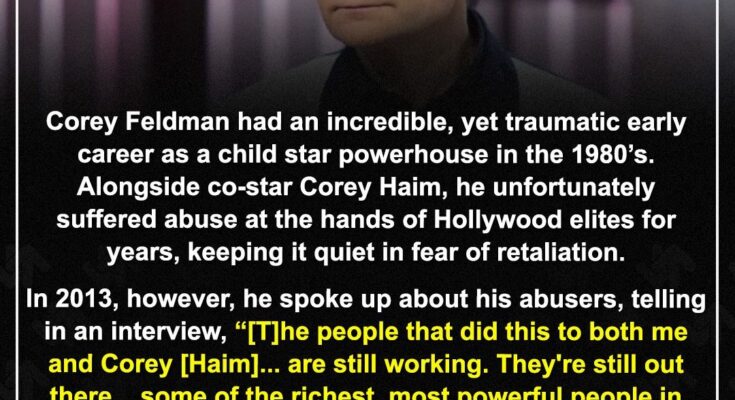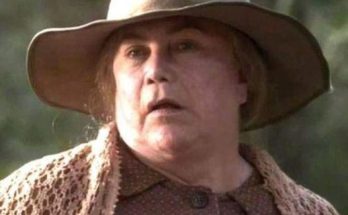John Snow Warned Everyone That A Tainted Water Supply Was The Cause Of Cholera
Before John Snow was a fan-favorite Game of Thrones character, the name was known for the man who discovered how cholera was being spread in mid-1800s England.
Snow long theorized the infectious disease was caused by contamination of water, but the accepted explanation at the time was that breathing bad vapors was the cause. (People seemed to think “bad air” was the cause of many things around this period.)
His idea was dismissed, but Snow kept looking for evidence. When a cholera outbreak killed 500 people in his neighborhood, he started tracking the contamination radius and found indisputable evidence that every case originated from drinking water from a specific town pump. Even more telling was that the prison in the neighborhood – which had hundreds of inmates – didn’t contract a single case of cholera. They were essentially breathing the same air as the infected people – but the prison had its own well.
Despite this overwhelming evidence, officials still wouldn’t recognize Snow’s theory – that was, until an article appeared that showed a leaky cesspool just a few feet from the pump was likely responsible for the deadly outbreak.
Joseph Lister’s Peers Didn’t Believe His Theories About Keeping Germs Out Of Surgery; Then His Ideas Became The Norm
In modern surgical procedures, antiseptics help destroy the pathogens that cause infections – sometimes life-threatening ones – from getting into a patient’s body. This technique, originally called the Antisepsis System, was developed by a 19th century British physician named Joseph Lister.
Lister began to study medicine in 1848. At that time, anesthetics had recently been introduced to surgeries. That made operations pain-free for patients and allowed surgeons to attempt more difficult procedures, but it also increased the risk of patient succumbing to infections such as sepsis or gangrene. And while the doctors recognized the infections, there was no consensus about what caused them or how they spread.
The risk of a patient surviving surgery but dying from an infection was so severe that in the 1860s, Lister’s contemporary, a prominent British surgeon named Sir James Young Simpson, warned:
A man laid on the operating table in one of our surgical hospitals is exposed to more chance of death than was the English soldier on the field of Waterloo.
After gaining experience as a surgeon, Lister ran tests in his home laboratory and established hospital clinical trials in an attempt to the discover the cause and nature of surgical infections. In 1864, he learned about Louis Pasteur’s germ theory, which speculated that the spread of pathogens in the body could be the cause of infection. Pasteur also suggested that infections could be controlled if the wound was treated with germ-killing chemicals.
Lister decided to apply Pasteur’s theory to surgical infections. Using carbolic acid, he developed an antiseptic that formed a chemical barrier between the wound and the surroundings. The carbolic acid killed germs on contact, but Lister’s work received a mixed response when he published his findings. Many surgeons didn’t believe germs caused infections, so they found his antiseptic procedure to be unnecessary. Others thought Lister was claiming carbolic acid was a cure rather than simply a preventive tool.
As more surgeries were performed and the infection rate began to drop drastically, Lister’s theory started being accepted by surgeons all over the world. He even got royal approval for using carbolic acid during a surgical procedure he performed on Queen Victoria
Brendan Fraser’s Acting Opportunities Dried Up After He Spoke Up About An Alleged Assault, But His Career Is Now On The Rebound
Sometime in the mid-2000s, Brendan Fraser went from being an idolized movie star to a little-seen punchline of internet memes. It’s hard not to correlate the shift with 2003, when Fraser spoke up about an alleged assault by then-president of the Hollywood Foreign Press Association, Philip Berk.
Fraser went public with his story in a 2018 interview with GQ, revealing that he had been subjected to unwanted groping from Berk:
I felt ill. I felt like a little kid. I felt like there was a ball in my throat. I thought I was going to cry.
While Berk called Fraser’s allegation a “total fabrication,” he admitted to the incident in his own memoir, though he said it was a joke. Fraser said the response from the HFPA at the time was a “deafening” silence, and that his big Hollywood movie offers started to dry up. He also said the incident made him want to step back from the spotlight. Fraser had other hardships in the years that followed – surgeries from stunt injuries, a divorce, and the passing of his mother – all of which make his internet mockery seem especially cruel in hindsight.
After his 2018 interview, Fraser said the HFPA approached him with a joint statement concluding the matter by acknowledging the incident was inappropriate and had occurred, but saying it was meant as a joke. Fraser refused to sign.
Berk, who was still a member of the HFPA up until he was booted for his comments on Black Lives Matter in 2021, said he did not read any report from the organization, but said “[I was] told the statement would absolve me of any wrongdoing.” The HFPA ultimately released a statement defending its actions, stating that an investigation had found “the exchange was not an intended sexual advance” while reiterating “what Mr. Fraser experienced was inappropriate.”
Ahead of the 2023 Golden Globe nominees announcement, Fraser, widely predicted to be nominated for The Whale, said he would boycott the event:
I have more history with the Hollywood Foreign Press Association than I have respect for the Hollywood Foreign Press Association… No, I will not participate… It’s because of the history that I have with them… And my mother didn’t raise a hypocrite. You can call me a lot of things, but not that.
Craig Ferguson Understood The Media’s Role In The Britney Spears Saga Years Earlier Than Everyone Else
In 2007, 25-year-old pop sensation Britney Spears was making tabloid headlines worldwide for her seemingly outlandish behavior. In a single weekend, the paparazzi caught her on camera getting tattoos and shaving her head before checking into a rehabilitation facility. While the rest of the world mocked the troubled star, comedian Craig Ferguson defended her on an episode of The Late Late Show. Once the truth behind Spears’s conservatorship under her controlling parents began to surface years later, Ferguson’s 2007 monologue went viral.
In his opening performance, Ferguson told surprised crowds that comedy was meant to mock those in power, like politicians, not to attack people in their most vulnerable states. Although he mentioned he didn’t know what substances (if any) Spears was using, Ferguson recognized her weekend-long debacle as the cry for help he also displayed when fighting alcoholism. The comedian reminded his audience that Spears was basically still a “baby” who was raising two young children of her own, before he requested the entertainment industry give the pop star a break.
The Media Mocked Richard Jewell And Tried To Paint Him As A Villain – But He Was Always A Hero
While working as a security guard at the 1996 Summer Olympics in Atlanta, GA, Richard Jewell discovered a suspicious backpack under a bench. He alerted officials, who found three pipe bombs inside. Jewell helped clear the vicinity, saving crowds of people from the bomb before it detonated. He was initially hailed as a hero. Until he wasn’t.
The FBI began investigating Jewell as the potential culprit, and an inside source leaked this information to the press. A trial by media ensued, and their verdict was guilty. The New York Post called him the “Village Rambo” while it and other outlets made vicious comments about his weight. He was even compared to the suspected serial killer of the Atlanta child murders of 1979-1981. Meanwhile, the FBI hadn’t even named him a suspect.
Jewell was cleared 88 days after the bombing, but by then the damage was done. His name was tarnished and tied to a crime he not only didn’t commit, but also actively saved people from.
The real bomber was eventually caught in 2003, and Jewell at last went to town legally on the publications that slandered him. More recent productions have shined a new light on the injustice of Jewell’s vilification, and he’s definitely worthy of this recognition.
Until his passing in 2007 from heart disease, every year on the bombing’s anniversary, he secretly placed a rose and card on the spot where spectator Alice Hawthorne lost her life.
In 1846, Ignaz Semmelweis Realized Doctors Could Prevent Disease By Washing Their Hands And Sterilizing Instruments Between Patients
As Hungarian doctor Ignaz Semmelweis made his rounds through the maternity wards at the General Hospital of Vienna in 1846, he made an astonishing discovery. One ward, staffed by male physicians and medical students, had an alarmingly higher death rate than the ward run by midwives. Intent on determining what caused puerperal fever – commonly known as childbed fever – he began collecting and analyzing data.
Compared with the maternity records staffed by the hospital’s midwives, patients under the physicians’ care were five times more likely to perish from disease directly after childbirth. After considering and dismissing a few trivial differences in procedure, Semmelweis determined the only substantial contrast between the wards occurred not during childbirth or maternal care, but after it.
While midwives were only responsible for assisting live mothers during the birthing process, physicians and their students also performed autopsies on women who succumbed to infection soon after delivering their children. Semmelweis hypothesized that cadavers left small traces of their infected bodies on the physicians’ hands, causing any person who came in contact with the particles later to be inflicted with the disease. To prevent the spread of childbed fever, doctors only needed to wash their hands and clean their operating tools between patients.
Semmelweis implemented the new cleanliness protocols, insisting that doctors use soap and chlorine to rid themselves of any smells left by a decaying corpse. Although the doctor wasn’t aware of germs, he did understand the concepts that caused the disease to spread. Fatality rates immediately went down in the physicians’ maternity ward, but most doctors weren’t pleased with his radical assessment.
The discovery meant that doctors were previously responsible for causing deaths related to postpartum infections, and Semmelweis made enemies as he ridiculed professionals who didn’t agree with his protocols. Doctors eventually stopped washing their hands with chlorine, and Semmelweis lost his job. He was placed in an institution after developing mental health problems at age 47 and eventually passed from sepsis – the same type of severe, systemic infection he tried to cure years ago.
Corey Feldman Raised Early Warnings Of Sexual Abuse In Hollywood
Corey Feldman was a child star in the 1980s, appearing in film such as Gremlins (1984), The Goonies (1985), and Stand By Me (1986).
In 2013, Feldman, then in his early 40s, published a memoir titled Coreyography in which he claimed he had been sexually abused by a man he identified only as “Ron” – an assistant of Feldman’s father. The actor also claimed that fellow child star Corey Haim told him about how he had been sodomized by a man he had mat on the set of Lucas (1986). The man allegedly convinced the teenaged Haim that “it was perfectly normal for older men and younger boys in the business to have sexual relations, that it was what all the guys do.”
Both Feldman and Haim (who passed in 2010) spoke out about how they were basically passed around to pedophiles working in the film industry:
They would throw these parties where you’d walk in and it would be mostly kids and there would be a handful of adult men. They would also be at the film awards and children’s charity functions.
The actor went on a tour to promote his memoir. In his October 2013 appearance on The View, Feldman explained:
[T]he people that did this to both me and Corey [Haim]… are still working. They’re still out there… some of the richest, most powerful people in this business.
Barbara Walters, one of the show’s co-hosts, ended up cutting off Feldman’s comments. She told him:
You’re damaging an entire industry [with these allegations].
Walters was not the only person who refused to believe Feldman’s allegations could be true. Others wondered why he wasn’t naming names. In 2016 he told The Hollywood Reporter:
People are frustrated, people are angry, they want to know how is this happening, and they want answers – and they turn to me and they say, “Why don’t you be a man and stand up and name names and stop hiding and being a coward?” I have to deal with that, which is not pleasant, especially given the fact that I would love to name names… But unfortunately California conveniently enough has a statute of limitations that prevents that from happening.
Shortly before Feldman’s interview with THR, another former child star, Elijah Wood, had given an interview that reignited the discussion about pedophilia in Hollywood. Wood later clarified that his comments hasn’t been based on his own experiences, but rather by news reports and the 2015 documentary An Open Secret, which explored child sexual abuse in Hollywood.
In 2020 Feldman released the documentary (My) Truth: The Rape of 2 Coreys, in which he named his abuser. In an interview with Entertainment Weekly prior to the film’s release, he explained his decision to do this:
It’s been a tumultuous and very risky and very scary time period. The last two years have been insurmountable, but I believe that with great risk comes great reward. And I believe the reward in all of this, if nothing else, will be that these guys are finally exposed. I’m hoping that what happened to [Harvey] Weinstein [will happen], that multiple victims will come forward. And as a result, these guys will finally get indictments and we can put them out of business.










